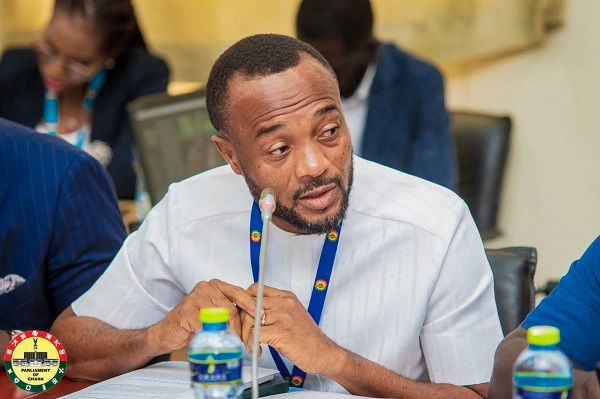The arrest and subsequent remand of Kwame Baffoe, also known as Abronye DC, the Bono Regional Chairman of the New Patriotic Party (NPP), has ignited a firestorm of criticism against the John Mahama-led government, particularly from the Minority Caucus in Parliament. They view this action not as a legitimate exercise of law enforcement but as a calculated maneuver to muzzle opposition voices and instill a climate of fear, thereby stifling political dissent. This incident, according to the Minority, is emblematic of a larger, more troubling trend of weaponizing the judicial system to target political adversaries, a practice they condemn as undemocratic and a dangerous erosion of fundamental freedoms. The denial of bail to Abronye DC further fuels their concerns, viewed not as a procedural matter but as a preemptive punishment, indicative of a predetermined outcome and a blatant disregard for due process.
The Minority’s position highlights the perceived erosion of democratic principles and the increasing use of legal mechanisms to silence dissenting voices. They argue that the charges against Abronye DC, “offensive conduct conducive to a breach of the peace,” are vague and overly broad, lacking the specificity required by international legal standards. This vagueness, they contend, allows for arbitrary application and becomes a convenient tool for targeting individuals deemed critical of the government. The rapid arrest and subsequent remand, coupled with the denial of bail, paint a picture, according to the Minority, of a predetermined course of action, aimed not at upholding the law but at silencing a political opponent.
The timing of Abronye DC’s arrest, just days after he publicly sought political asylum in eight countries, adds another layer of complexity to the situation. His asylum petition, widely circulated online, alleged political persecution and threats to his life from the Inspector-General of Police. This public plea for international protection, seen by many as a desperate measure, underscores the perceived gravity of the situation and the increasing sense of insecurity among opposition figures. The Minority Caucus sees the subsequent arrest as a direct response to this asylum request, further solidifying their belief that the government is actively targeting those who speak out against it.
The Minority’s statement strongly condemns what it characterizes as a “deliberate and systematic campaign to suppress dissent.” They see the Abronye DC case not as an isolated incident but as part of a broader pattern of intimidation and harassment aimed at curtailing political opposition. This pattern, they warn, poses a significant threat to Ghana’s democratic foundations and creates an environment of fear and self-censorship. The denial of bail, in their view, exacerbates this situation, serving as a stark warning to others who might consider challenging the government’s authority.
The Minority’s concerns extend beyond the immediate circumstances of Abronye DC’s arrest. They raise broader questions about the independence of the judiciary and its susceptibility to political influence. The use of seemingly vague charges and the swiftness with which Abronye DC was remanded, coupled with the denial of bail, raise concerns about the fairness and impartiality of the legal process. The Minority’s accusations paint a picture of a judicial system being used as a tool of political repression, undermining the rule of law and eroding public trust in the institutions designed to uphold it.
This incident, according to the Minority Caucus, underscores the fragility of democratic institutions and the importance of safeguarding fundamental freedoms. They call for a thorough and impartial investigation into the circumstances surrounding Abronye DC’s arrest and remand, emphasizing the need for transparency and accountability. They urge the government to uphold the principles of due process and to ensure that the judiciary remains independent and free from political interference. The Minority’s strong response signals their determination to resist what they perceive as an orchestrated campaign to stifle dissent and undermine the democratic values they hold dear. They view this incident as a critical test of Ghana’s commitment to democracy and a harbinger of potential challenges to freedoms of speech and political expression.


